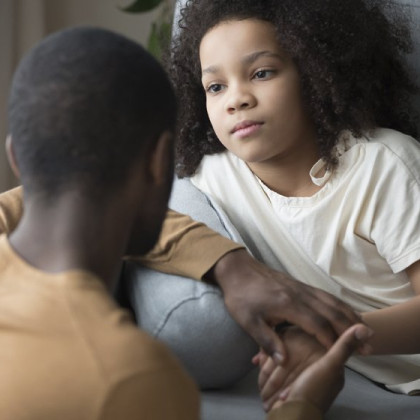Child Abuse Prevention Month – Talking with Your Child About Scary or Hurting Touch
6 April, 2022

Talking with your child about scary or hurting touch can be uncomfortable and even frightening, but it is an essential conversation to have and to keep having as they grow up. The more knowledge your children have, the more empowered they will feel and that empowerment can help increase their protection.
- Talk with your child about scary/hurting touch and what it means.
- Talk with your child about how they can identify scary/hurting touch.
- Children should be able to identify at least 3 trusted adults they can go to if needed.
Those adults should be notified they are “trusted” and what that role means. - Discuss ‘keeping secrets’ with your child and when a secret should be told to their trusted adult.
- Children should know that they will never get into trouble for telling about any touch or conversation that made them feel uncomfortable.
- Make sure your child knows the correct terminology for their body. This will not only increase body empowerment but also provide clarity when a child is discussing a scary/hurting touch.
- Make sure your child understands that situations such as physicals and bath time are needed to take good care of their bodies. These can also be an opportunity for your child to learn correct body terminology, body positivity and positive self-care.
- Children should feel empowered to greet or say goodbye as they chose. When parents honor the child’s right to refuse to be hugged, touched, tickled or even kissed goodnight they are helping their child learn to protect themselves from scary/hurting touch. If they say “no” or choose not to touch someone, their choice should be honored for them to learn that they have control and power of their body.
- Many times children are taught only to protect what is referred to as their “private parts.” However, children should be taught that they own their entire body from the top of their head to the tips of their toes and their personal space that surrounds them. Children should feel empowered to say “No” and tell their trusted adult of any touch anywhere on their body that makes them feel uncomfortable.